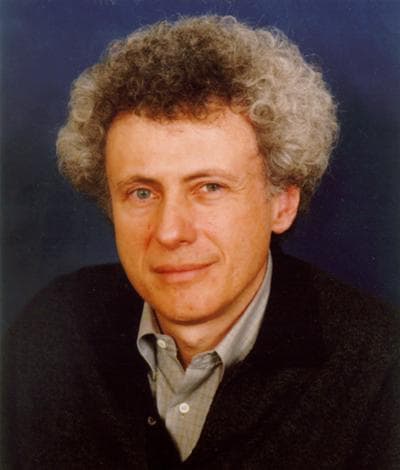Advertisement
Harvard Trauma Expert: Perpetrator's Death Can 'Unfreeze' Grieving

Dr. Harold J. Bursztajn is the co-founder of Harvard Medical School's Program in Psychiatry and the Law, based at Beth Israel Deaconess Medical Center. A psychiatrist, he has a special interest in the treatment of patients after massive psychic trauma, including the Holocaust. I asked him for his insights into the national psychological dynamics as the country reacts to news of Osama bin Laden’s death.
Q: How do you interpret the public mood today?
A: The mood is one of relief. There is some sense of not quite jubilation — jubilation is the wrong word for it — but a deep sense of relief. There’s a patient I’ll be seeing this afternoon who’s a child survivor of the Holocaust, and I was seeing her the day when the towers were destroyed, and I remember how terrified she felt, and how she felt that once again she was helpless. And this was all happening again. So that to the extent that justice has now been served, I know it’s going to be a relief to her.
I also have treated people who lost relatives in 9/11. And again, the sense is going to be that this doesn’t obviate the grief of my loss, but at least now I can grieve in peace.
For many people, both those who lost loved ones in 9/11 or to other acts of terrorism, this, rather than ending the grief process, allows the grief process to proceed. For many people, it’s been frozen, in the sense that the perpetrator was still out there. It’s a little bit like the reactions to the Eichmann trial [of a high Nazi official who was ultimately condemned to death.] When I was in Israel this April, I visited Yad Vashem [the Holocaust memorial] on the fiftieth anniversary of the Eichmann trial, and had a chance to talk with the survivors. For them, the Eichmann trial was a pivot, a turning point of being able to look back at the past without fear that the perpetrators were still enjoying good lives. Again, that doesn’t mean the sadness isn’t there. The sadness is there, but the fear is no longer overwhelming.
Q: So the fact that the fear is gone can help with healing?
The grieving process is a healing process. Being able to acknowledge the loss, being able to bear the loss, you know that whoever has been lost is not coming back, but on the other hand, neither is the perpetrator. It doesn’t make up for the loss but at least there isn’t the sense that it can happen again, that the perpetrator is alive and enjoying the pleasures of life while my loved one is no longer here and I miss them terribly. So the missing is still there but the fear does get turned down.
Even the mass demonstrations that we saw in Boston and New York and Washington — it’s not jubilation so much as people saying, ‘Look we can come together in a crowd here. We’re no longer afraid.’ Unfortunately, from the al Qaeda point of view, there will be attempts to enact mass terrorist acts again, but the message has been sent to the perpetrators, as it was sent to Eichmann, that sooner or later, justice will be done.
Q: So if you’re bereaved, does it actually help you heal for the perpetrator to be punished?
It doesn’t replace the person who you have loved and lost, but it does give you a sense that you’re not entirely helpless in the face of that loss. It empowers people to some extent. We may not be living in a just universe, but at least we know we can go ahead and act in a civilized manner which is consistent with justice. It doesn’t make the natural world any more fair, but it does make the human world one which at least strives for fairness.
This program aired on May 2, 2011. The audio for this program is not available.
